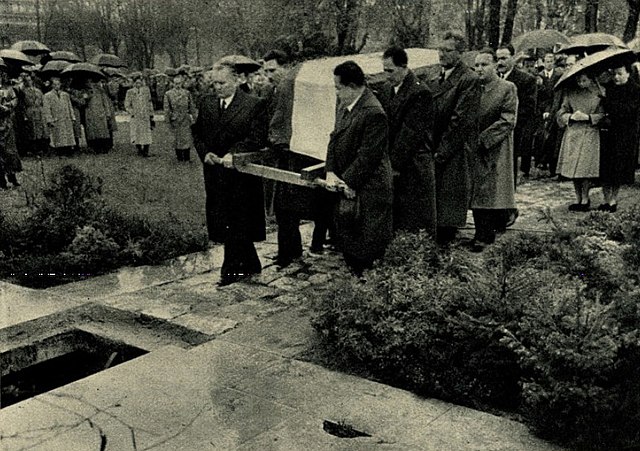Boris Kidrič was a Slovene and Yugoslav politician and revolutionary who was one of the chief organizers of the Slovene Partisans, the Slovene resistance against occupation by Nazi Germany and Fascist Italy after Operation Barbarossa in June 1941. He became the de facto leader of the Liberation Front of the Slovenian People. As such, he had a crucial role in the anti-Fascist liberation struggle in Slovenia between 1941 and 1945. After World War II he was, together with Edvard Kardelj, a leading Slovenian politician in communist Yugoslavia.
Boris Kidrič
Boris Kidrič burial in 1953.
The Slovene Partisans, formally the National Liberation Army and Partisan Detachments of Slovenia, were part of Europe's most effective anti-Nazi resistance movement led by Yugoslav revolutionary communists during World War II, the Yugoslav Partisans. Since a quarter of Slovene ethnic territory and approximately 327,000 out of total population of 1.3 million Slovenes were subjected to forced Italianization since the end of the First World War, the objective of the movement was the establishment of the state of Slovenes that would include the majority of Slovenes within a socialist Yugoslav federation in the postwar period.
During World War II, Nazi Germany and Hungary annexed northern areas (brown and dark green areas, respectively), while Fascist Italy annexed the vertically hashed black area (solid black western part being annexed by Italy already with the Treaty of Rapallo). After 1943, Germany occupied the Italian-annexed area.
Main staff of National Liberation Army in 1944. From left to right: Boris Kraigher, Jaka Avšič, Franc Rozman, Viktor Avbelj and Dušan Kveder.
A triglavka, as used by the Slovene Partisans





